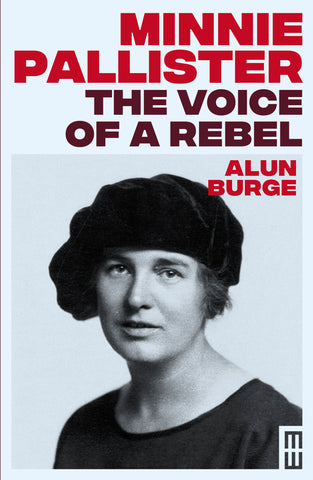The latest title in Parthian’s Modern Wales series

"Minnie Pallister is one of those women who has been woefully missing from Welsh history. Now she is rightfully restored to her position as a significant figure in twentieth-century women’s and labour activism, thanks to Alun Burge’s meticulous research and compelling account of her courageous life story. Read on…" – Angela V. John
Minnie Pallister’s life was so fantastic that not even a thriller writer could imagine it. A feminist, pacifist and socialist, she was twice accused of sedition in the First World War before travelling to Nazi Germany in late 1938 and 1939 to rescue Jews, helping bring them to Britain at the outbreak of the Second World War. In between, having reached national prominence in the labour movement, in which she was considered the best woman orator, and with a Parliamentary career beckoning, she was struck down by an illness which cruelly robbed her of speech. Suffering years of paralysing infirmity, which reduced her to the edge of penury, she eventually recovered to become a successful journalist with the Daily Mirror and the Daily Herald.
Fearless and principled and always challenging, not least in advocating gender equality, Pallister was initially barred from a position with the BBC because of her socialist politics, and later twice banned by the Corporation, first for her pacifist then her feminist politics. An outstanding broadcaster who became for a time a household name, she was a regular contributor to Woman’s Hour and as an advocate of women’s rights from the 1920s to the 1950s, she was a forerunner of the Women’s Liberation Movement. Pallister was such a compelling figure that her ‘Life Story’ was serialised on radio over five days during her lifetime.

Alun Burge is from the Sirhowy valley. He studied in evening classes before going to Hull University. During the 1980s he lived in Nicaragua and during the 1990s worked for international organisations, mainly in Latin America. After a decade in the Department of Social Justice of Welsh Government, he now has an honorary research post in the History Department of Swansea University and is currently undertaking a project on international solidarity at the National Museum of Wales.

